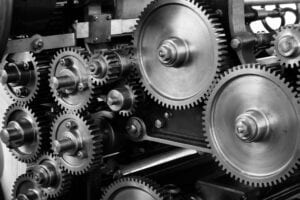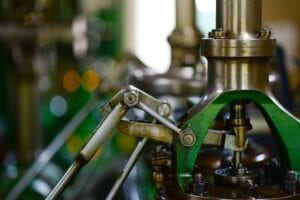
When constructing their balance sheets, companies must consider depreciation – the loss of value of their plant and equipment over time. Typically, depreciation runs between 3 and 10 percent per year, depending on your industry, representing a high cost and massive drag on your overall value.
Most entrepreneurs assume that there is nothing that they can do about depreciation. It’s the laws of physics. Entropy means that things necessarily wear out. That’s life. Get used to it.
But it turns out that there are a variety of strategies that you can use to shave a couple of percentage points off your secular rate of depreciation, potentially saving you millions in the long-term. After all, who wants to buy new machinery every few years unnecessarily?
Create A Predictive Maintenance Plan
One of the promises of industry 4.0 is that it will allow companies to install sensors on their equipment and literally predict when it is likely to fail. Measuring devices will capture operating information, feed it through smart algorithms, and pump out estimates of the probability of failure. Engineers can then take plant apart, replace various components, and put it back together again.
Sorting out problems before they become mechanical failures is often much cheaper. And, in complex systems, resolving issues in one area can enhance the lives of others.
Use Ideal Storage
Leaving plant, vehicles, and equipment in an open shed or outside is the done thing in many industries, but it is not ideal. Weathering takes a massive toll on industrial equipment, causing it to lose value far more rapidly than it could under ideal conditions.
Smart companies use secure industrial sheds. These are inexpensive, weather-proof units that keep out damp, moisture, and extreme variations in temperature that could damage equipment. Plus, it helps to keep your capital goods secure, avoiding increases in insurance premiums.
Audit Your Machinery

Fifty years ago, people expected their vehicles to break down after a couple of years. It was the norm. Today, though, it certainly isn’t. The reason for this comes down to improvements in manufacturing and components. Manufacturers have improved vehicles to the point where they can now offer seven-year warranties – something that was unthinkable in the past.
The story doesn’t end there, though. What’s happening in the motor vehicle industry is also happening in other sectors. Firms that make machinery and equipment are learning every year what works and what doesn’t. The result is more robust, durable, and long-lasting equipment that doesn’t depreciate as rapidly.
Take bearings, for instance. In the old days, metal bearings in machinery would eventually wear out and bring everything to a clunking halt. They weren’t particularly reliable. And even though cartridge bearings made them more replaceable, it was a significant cost for industry.
Now, though, new rolling technologies are emerging that don’t rely on small metal balls at all. Instead, they use resin internals that are resistant to both water and general wear and tear.
Keeping depreciation low on your balance sheet ultimately makes your firm more profitable and provides competitive advantage.
